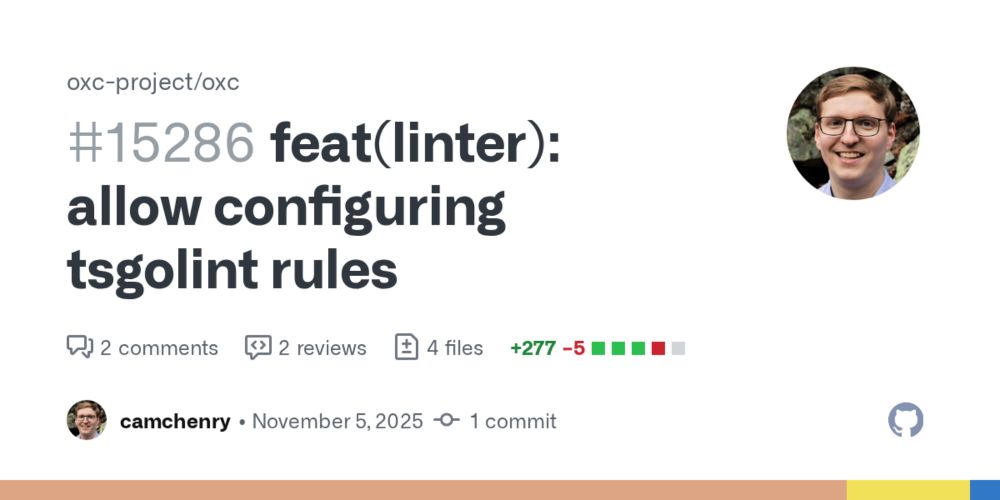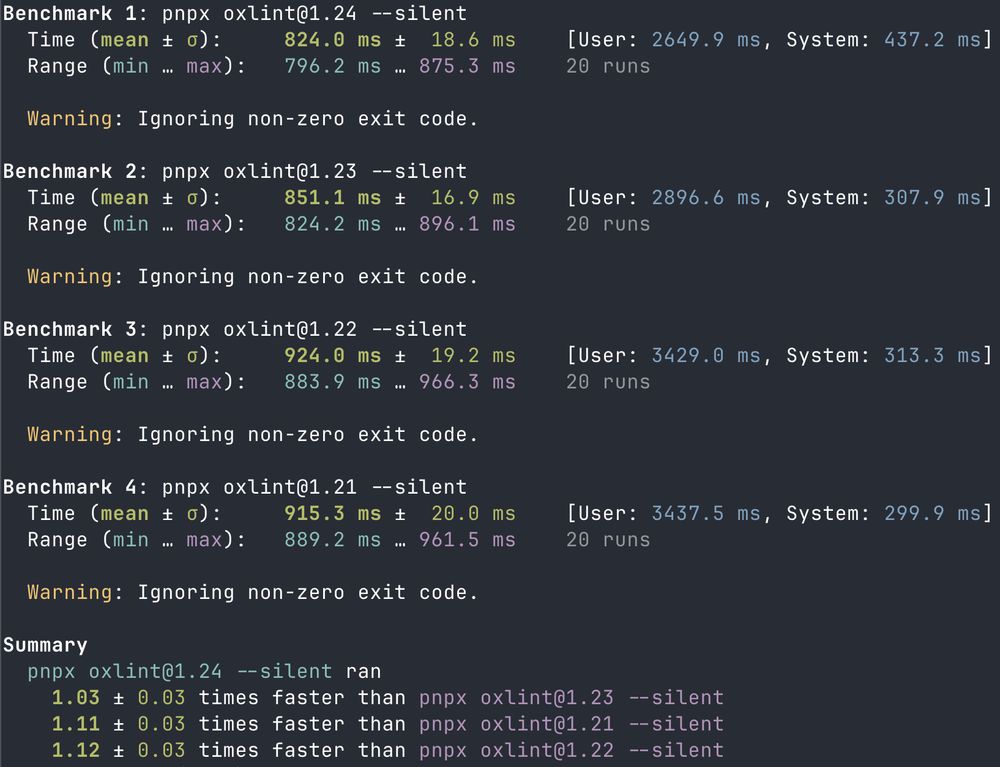camchenry.com
Just a few months after our technical preview, type-aware linting reaches the alpha milestone!
✨ Type-aware rules can now be configured
🙈 Inline comments to disable rules work for type-aware rules too
✔ Auto fixes for type-aware rules are now available


A special thanks to the @typescript-eslint.io team who have set the standard for typed lint rules here. Much of this work is based on what has come before and on their rules.
tsgolint alpha soon!
github.com/oxc-project/...

A special thanks to the @typescript-eslint.io team who have set the standard for typed lint rules here. Much of this work is based on what has come before and on their rules.
github.com/oxc-project/...

github.com/oxc-project/...

*Oh yeah, is your list actually UNordered? Prove it.*
*Oh yeah, is your list actually UNordered? Prove it.*
hear no memo
speak no memo
hear no memo
speak no memo
Being independent in open source for 3.5+ years has been wonderful. I've gotten done most of the high-level goals I wanted to, and miss having people & structure around me.
If you know of a role for a staff-level TypeScript+web developer, let me know! 🙂
Being independent in open source for 3.5+ years has been wonderful. I've gotten done most of the high-level goals I wanted to, and miss having people & structure around me.
If you know of a role for a staff-level TypeScript+web developer, let me know! 🙂

That means if you haven't updated to one of the latest versions in a few weeks, your linting step could be >10% slower than it should be!

That means if you haven't updated to one of the latest versions in a few weeks, your linting step could be >10% slower than it should be!
But that doesn't stop me from trying to get that juicy big one 😅
But that doesn't stop me from trying to get that juicy big one 😅
Running on the vscode repository on my M1 laptop, 1.23.0 is ~7-9% faster than previous versions of oxlint with no changes other than just bumping the dependency.

Running on the vscode repository on my M1 laptop, 1.23.0 is ~7-9% faster than previous versions of oxlint with no changes other than just bumping the dependency.
On my laptop: ~15% faster on `oven-sh/bun`, ~9% faster on `microsoft/vscode`, ~11% faster on `posthog/posthog`, and ~8% faster on `elastic/kibana`
On my laptop: ~15% faster on `oven-sh/bun`, ~9% faster on `microsoft/vscode`, ~11% faster on `posthog/posthog`, and ~8% faster on `elastic/kibana`
VoidZero is a proud sponsor of this year's @squiggleconf.com on September 18th and 19th in Boston.
We've got an extra ticket for the event and want to give it away to one of you so you can join us there!
Learn in this thread how you can enter the raffle 👇

VoidZero is a proud sponsor of this year's @squiggleconf.com on September 18th and 19th in Boston.
We've got an extra ticket for the event and want to give it away to one of you so you can join us there!
Learn in this thread how you can enter the raffle 👇
The result: linting is around 15% faster in practice.



The result: linting is around 15% faster in practice.

Introducing Rslint - a TypeScript-first linter written in Go (powered by typescript-go, not Rust 🙃)
Currently in experimental stage - check out the repo's README for more details:
github.com/web-infra-de...

Issue: github.com/eslint/eslin...
PR: github.com/eslint/eslin...

Overall, I think right now is a great time to learn more about linting, parsing, and ASTs.
If you never thought you should care about your linter, this will blow your mind! 🧠
Overall, I think right now is a great time to learn more about linting, parsing, and ASTs.

